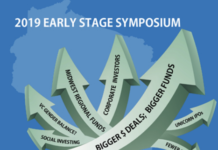
Michael Best Strategies congratulates our friends at the Wisconsin Alumni Research Foundation (WARF), University of Wisconsin-Madison College of Agricultural and Life Sciences (CALS), and the College of Engineering as they work to solidify industry partnerships. We are witnessing the reach of the Wisconsin Idea expanding the boundaries of higher education, and we applaud our flagship university and their partners for enhancing business connectivity.
WARF is publishing a series of articles, which includes one detailing how UW/Industry Partnerships Yield Better Solutions: “…industry and universities need each other. Businesses need the new discoveries generated in university labs, and university scientists need the practical challenges and perspectives from the marketplace to inspire and inform their research. These are mutually beneficial conditions that create strong partnerships to drive innovation.”
Here at Michael Best Strategies, we couldn’t agree more. There is a strong theoretical basis for why the public sector should coordinate and work with the private sector, and vice versa to implement a shared value strategy. WARF is helping produce homegrown examples of public-private partnerships between universities and companies in their respective industries. When business interests serve citizen initiatives, both sides benefit.
How can industries facilitate working with state entities to create shared value for each partner? An article written in Harvard Business Review by Michael Porter and Mark Kramer suggests, “companies could bring business and society back together if they redefined their purpose as creating shared value by generating economic value in a way that also produces value for society by addressing its challenges.” Simply put in their terms: A shared value approach reconnects company success with social progress. This is an attractive concept and one ripe for our growing capitalist economy.
As imperative as it is for government to seek opportunities to partner with companies, it is also necessary that the private sector invests in and promotes shared value policies and projects for the betterment of the communities where they do business. Shared value strategies have great potential to create economic success for businesses while also serving the public sector and utilizing academia.
UW-Madison CALS researchers and industry partners have a history of working together – they combated rickets with Vitamin D-enriched foods and safeguarded the quality of industry milk with the Babcock butterfat test. Today, Dean Kathryn VandenBosch of CALS and Chris Salm, a co-founder of Ab E Discovery, exemplify another wave of pragmatic leadership as they work to reestablish the value public-private partnerships create. With the help of WARF, Ab E Discovery – a young company that began with innovation at the UW – is bringing its university/industry collaboration to the marketplace.
WARF is also working with the UW-Madison College of Engineering and the UW-Madison Office of Corporate Relations, among others, to establish “a new framework for public-private partnerships, making it easier for faculty members and industry to engage with each other.”
In Wisconsin and Washington, D.C., shared value is encouraging businesses to work with the public sector and is changing the dynamics of how public administrators and policymakers view partnerships with industry. When universities and government appropriately leverage private capital and expertise, citizens, consumers, and businesses stand to share collective gains.





